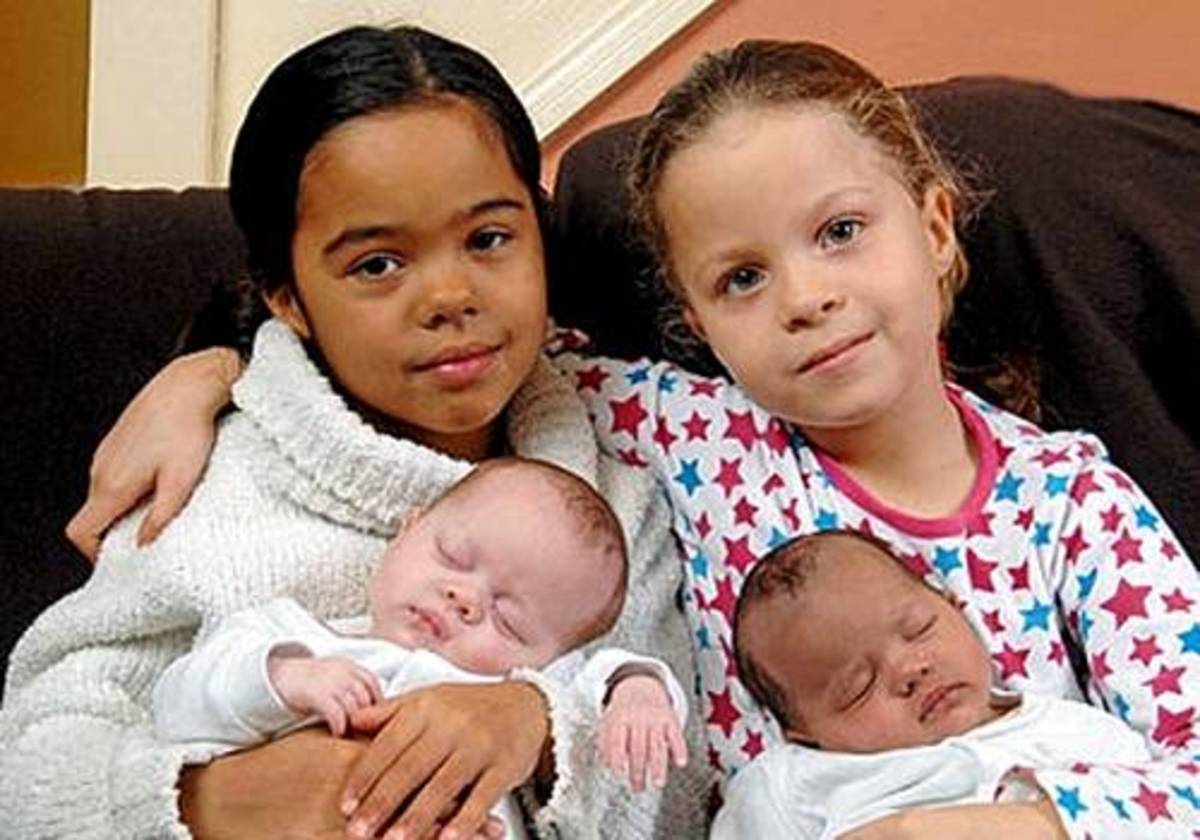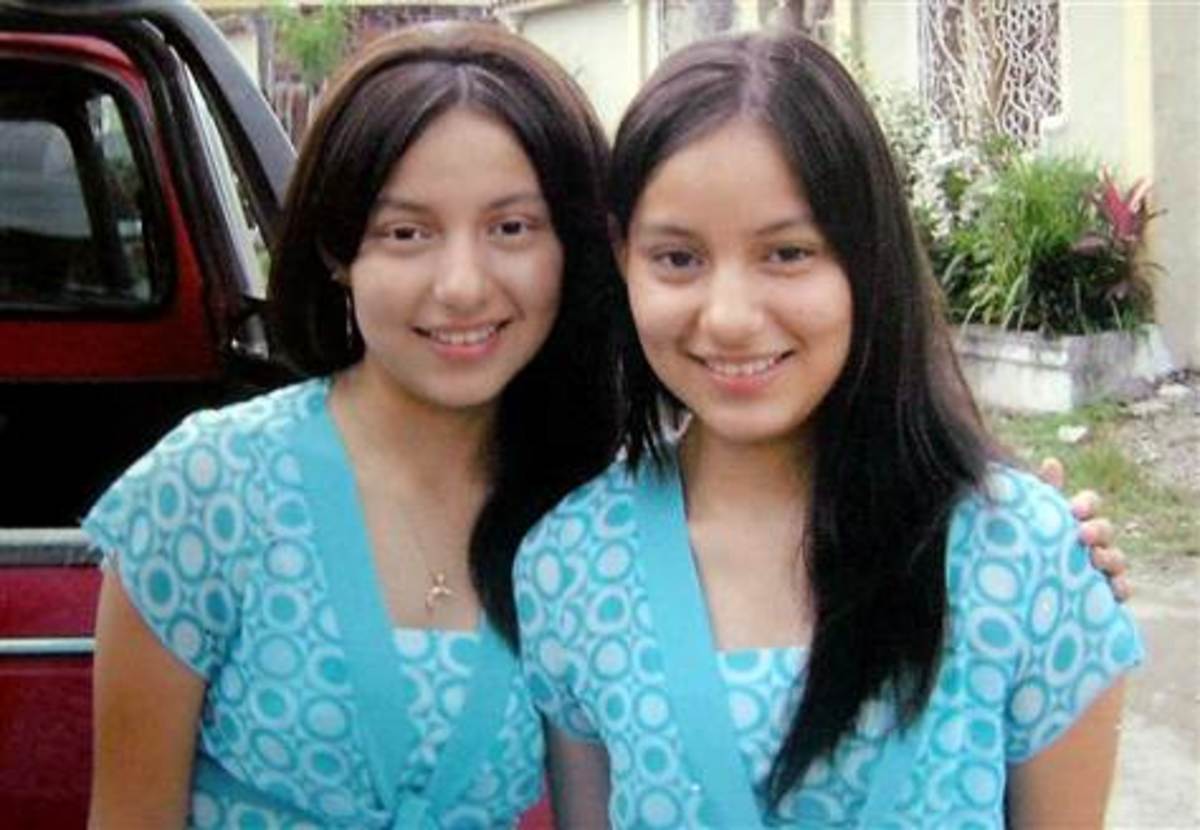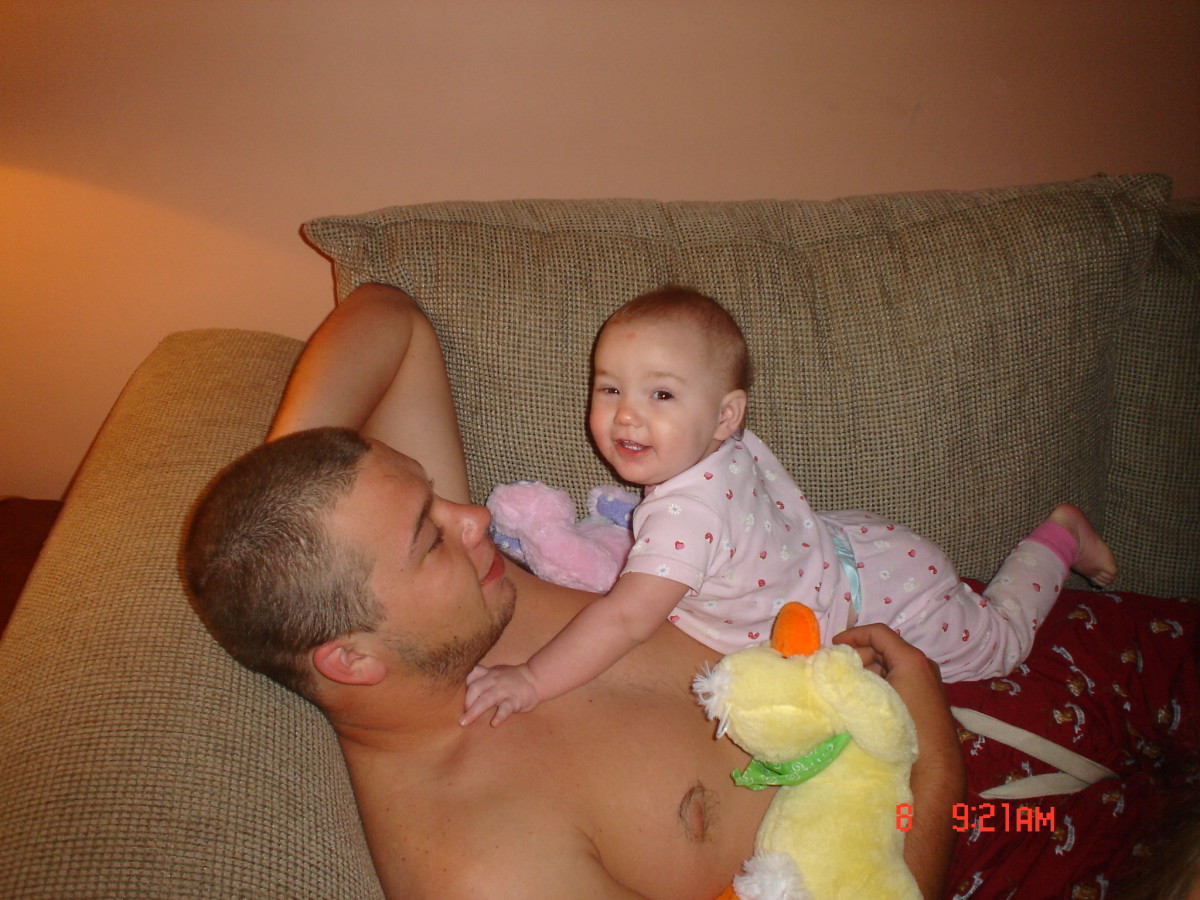You can have twins with this basic knowledge
The McGhee family whose new born shots of their sextuplets went viral years back have recreated the same photo now with grown and healthy sextuplets!! Kudos to these wonderful parents for the efforts they've put into raising these good looking kids!!
Would you like to have more than one child at a time?
See more below
Many homes today prefer to have more than one child at a time. Some see it as a way of attracting more blessing from God that is why most churches now pray for couples to have twins or even triplets.
In this write-up, I will share more information on this subject matter, what can lead to having more than one child at a time using twins as case study.
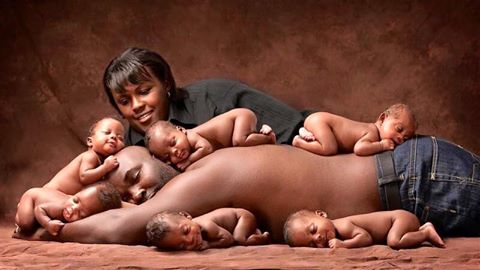
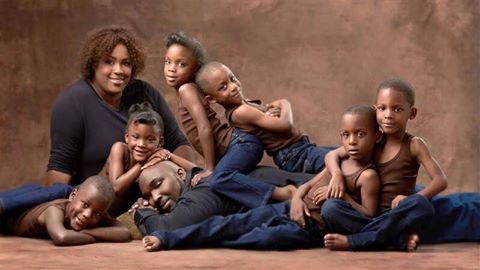
We have two types of twins: Identical and non-identical (fraternal) twins.
- Identical twins happens when one egg is fertilized by one sperm. The fertilized egg then splits into two embryos. Experts think that this happens by chance. If the babies you're carrying are identical, they:
- Are either all boys or all girls.
- All have the same blood type.
- Probably will have the same body type and the same color skin, hair, and eyes. But they won't always look exactly the same. They also won't have the same fingerprints.
- 2. Non-identical (fraternal) twins happens when two or more eggs are fertilized by different sperm.
If the babies you're carrying are fraternal, they:
- Can be both boys and girls.
- Can have different blood types.
- May look different from each other or may look the same, as some brothers and sisters do.
This type of twins (fraternal twins) can be influenced by so many natural and unnatural factors as highlighted below:
- Family history. Do twins run in your family? If you have a mother, brother, sister, uncle or long-lost cousin with multiples, you may wonder if you'll have them too. Sometimes twinning is hereditary, it's true. However, only fraternal (dizygotic)) twins are influenced by heredity. If your mother or maternal grandmother was or had fraternal twins, you might have inherited a gene for hyperovulation, increasing your chances of conceiving twins also.
- Conceiving at older age. Older mothers are more likely to conceive twins than their younger counterparts. It's thought that the body accelerates ovulation as the biological clock starts ticking faster. Almost 30% of mothers who give birth over the age of 45 have multiples. However, the risks also increase; older mothers have a higher rate of miscarriage and are more likely to experience problems such as gestational diabetes during their pregnancy.
- Gaining weight. A study published by the American College of Obstetrics and Gynecology correlates the rise in multiple birth rates with rising rates of obesity. The research found that mothers with a BMI (Body Mass Index) of 30 or higher were significantly more likely to have twins.
- Eating live style. Your eating lifestyle can also influence one having more than one baby at a time. A study concluded that the mother's diet was the cause, being high in cassava, a type of yam or sweet potato. The peelings of this vegetable are thought to contain a chemical that causes hyperovulation.
Another study suggested that women who consume dairy are more likely to have twins due to high levels of a synthetic hormone in milk products.
5.Pregnancy after stop using birth control pills. Research has shown that, the rate of ovulation (leading to hyperovulation) increases after a woman has stopped using birth control pills. That long time stoppage triggers hyperovulation.
6. In vitro fertilization (IVF). This can increase the chance of twins, as more than one embryo may be transferred. A research in UK showed that, after natural conception, about 1 in 80 births in the UK results in multiples, compared with 1 in 5 after IVF.

